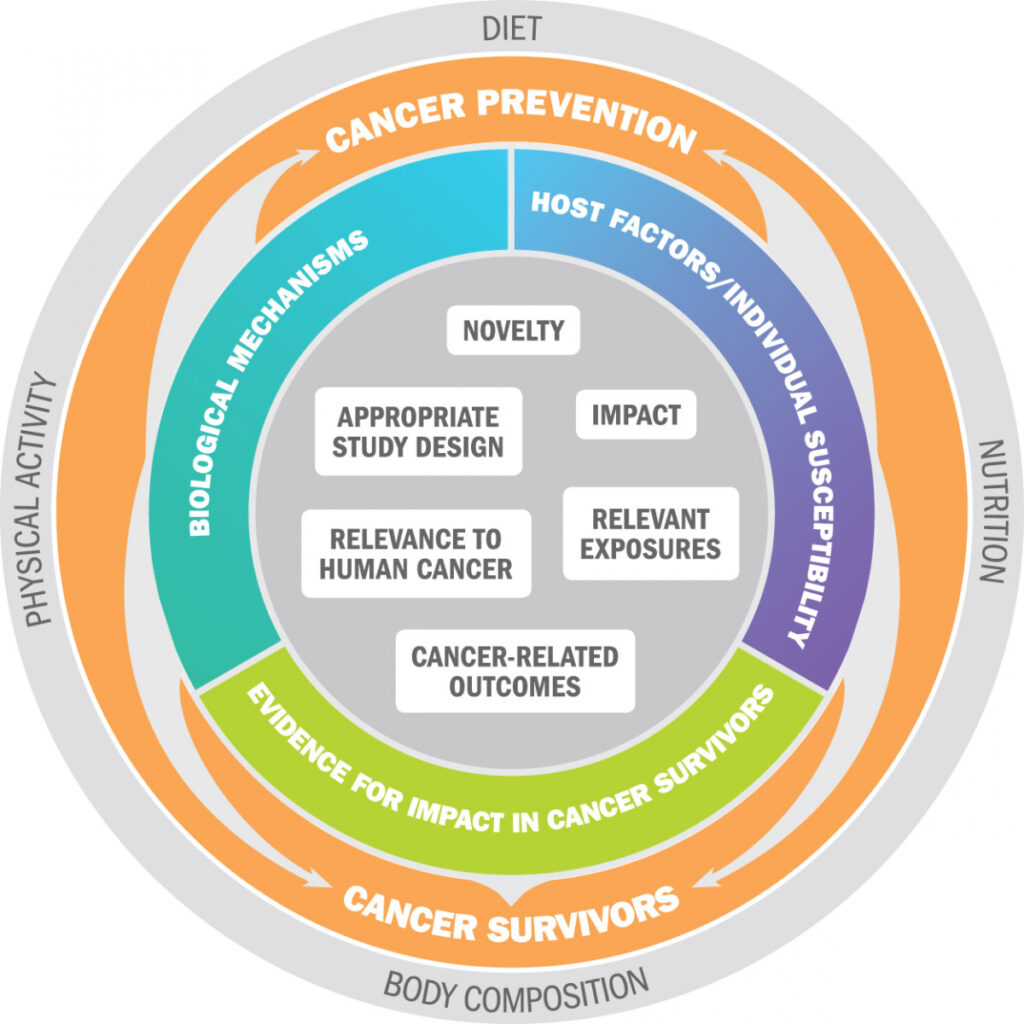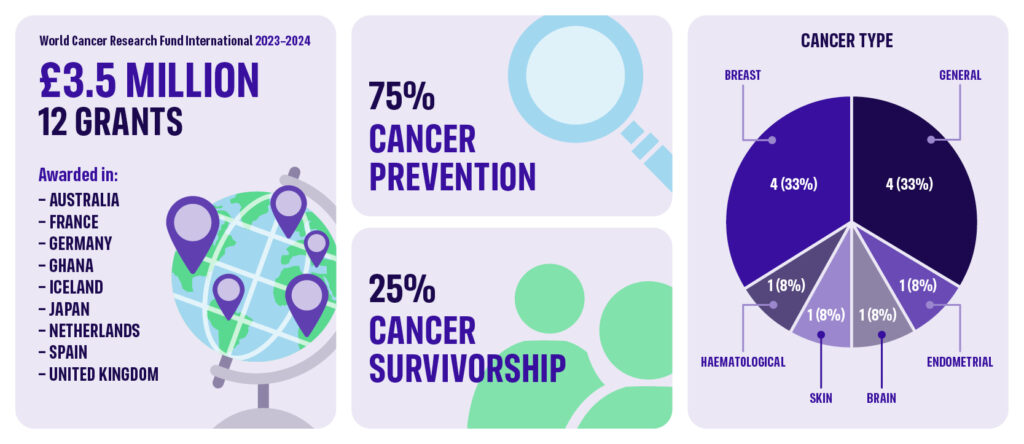Regular Grant Programme
The aim of the World Cancer Research Fund Regular Grant Programme is to support innovative and original research into the role of diet, nutrition, body composition and physical activity in either cancer prevention or cancer survivorship.
Grant application timeline
- This grant call is now closed and will open in September 2025
- Full application for shortlisted applicants opens: February 2026
- Deadline for full applications: March 2026
- Funding decisions announced: September 2026
Applicants based in a low- or middle-income country, please contact us at research@wcrf.org in advance to express your interest in applying for a grant.
> Full details on the grant programme call can be found in our guidelines document
Investigator initiated grants
Eligible applicants: lead applicants must hold a research position at the host institution for the duration of the project.
Eligible organisations: anywhere in the world except the Americas (North America, Central America including the Caribbean, and South America).
Level of funding: up to £500,000
Duration of funding: up to 4 years
> Instructions on how to fill in the investigator initiated grants application form (PDF)
Pilot and feasibility grants
Eligible applicants: lead applicants must hold a research position at the host institution for the duration of the project.
Eligible organisations: anywhere in the world except the Americas (North America, Central America including the Caribbean, and South America).
Level of funding: up to £60,000
Duration of funding: up to 2 years
> Instructions on how to fill in the pilot and feasibility grants application form (PDF)
Grant themes
Our regular grant programme groups research into 2 themes – cancer prevention and cancer survivors. Each of these areas may be addressed either from the perspective of identifying the mechanisms that underpin the effect of diet, nutrition and physical activity on cancer, or by addressing the host factors that influence individual susceptibility to cancer development or progression, and so contribute to explaining variability between people in outcomes.
For cancer survivors, we also encourage broader research into evidence for impact of diet, nutrition (including body composition), physical activity and outcomes after cancer diagnosis, as robust evidence on this is still lacking.

How to apply
Applications must be made using our Grants Management System. Once registered with the system, you will have access to the application forms for open grant rounds. You will find instructions on how to complete the applications on the WCRF GMS site and in the instructions PDFs listed above for both grant types. Ensure you carefully read through the instructions and the guidelines below.
> Find out who’s on the Regular Grant Programme Panel
Guidance documents
> Full details on the grant programme call can be found in our guidelines document (PDF)
> Instructions on how to fill in the investigator initiated grants application form (PDF)
> Instructions on how to fill in the pilot and feasibility grants application form (PDF)
If you have any queries, please email research@wcrf.org
“Our WCRF-funded research sheds new light on the mechanisms linking adult body size and energy restriction in youth to cancer risk. Our results identified that there are critical time-windows of exposure with regards to cancer, and that hormonal, growth and metabolic pathways are already important at a young age for the risk of colorectal and breast cancer over age 55 years” – Prof Matty Weijenberg, grant holder

Information for grant holders
If you currently receive funding from World Cancer Research Fund International and have any questions, please see our information for research grant holders



